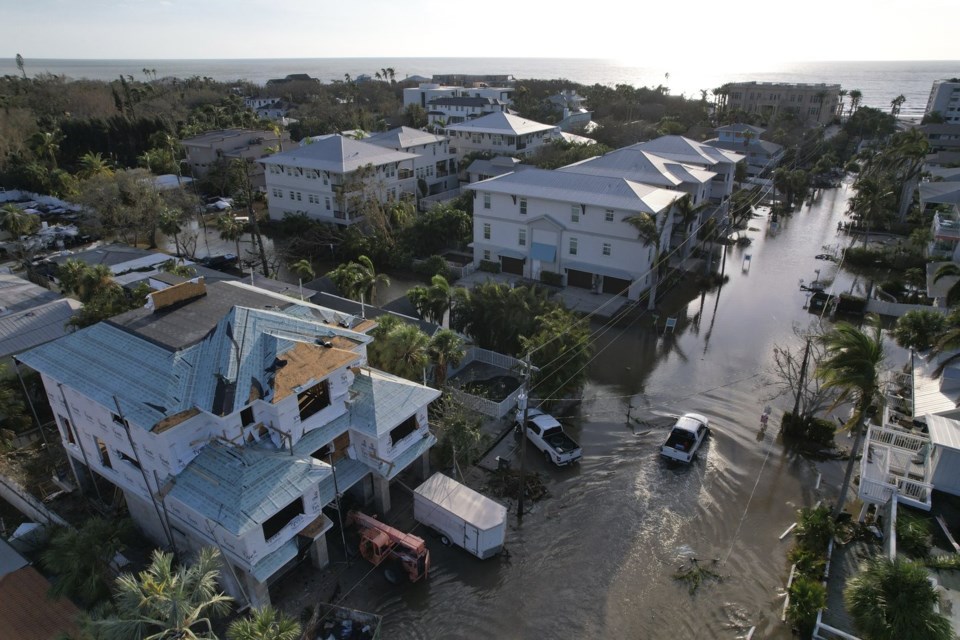Human-caused climate change intensified 's rainfall by 20 to 30% and strengthened its winds by about 10%, scientists said in . The analysis comes just two weeks after the southeastern United States, a storm also fueled by climate change.
World Weather Attribution researchers said Friday that without climate change, a hurricane like Milton would make landfall as a weaker Category 2, not considered a “major” storm, instead of a Category 3.
WWA’s rapid studies aren’t peer-reviewed but use peer-reviewed methods. The WWA compares a weather event with what might have been expected in a world that hasn’t warmed about 1.3 degree Celsius since pre-industrial times.
The team of scientists test the influence of climate change on storms by analyzing weather data and climate models, but in the case of Milton — which followed so shortly after Helene — the researchers used only weather observations data. WWA said despite using different approaches, the results are compatible with studies of other hurricanes in the area that show a similar hurricane intensity increase of between 10 and 50% due to climate change, and about a doubling in likelihood.
“We are therefore confident that such changes in heavy rainfall are attributable to human-caused climate change,” said an international scientist collaborative that launched in 2015 and conducts rapid climate attribution studies.
At least , which spread damage far and wide even though it didn't directly strike Tampa as feared. Roadways flooded and dozens of tornadoes tore through coastal areas. At one point power was out to some 3.4 million customers, and more than 2.4 million remained without power Friday morning.
Milton made landfall Wednesday evening as a on the west coast of Florida near Siesta Key, about 70 miles (112 kilometers) south of the , driven by .
Climate scientist Michael Mann said he agrees with the thrust of the analysis that climate change substantially worsened the hurricane. But if anything, Mann said, the study might “vastly understate the impact that it actually had” with what he called “the fairly simple approach” of its estimates.
He cited other attribution studies after Helene that calculated significantly larger rainfall due to warming.
“It’s the difference between a modest effect and a major effect,” Mann, of the University of Pennsylvania, told The Associated Press. “I would argue that the catastrophic flooding we saw over large parts of the southeastern U.S. with Helene was indeed a major effect of human-caused warming.”
Another analysis, done by research organization Climate Central, said earlier this week that the warmed water temperatures that amplified Milton. Andrew Pershing, the group's vice president for science, said those waters were made up to 200 times more likely with climate change. The group said waters were more than 1.8 degrees F (1 degrees C) warmer than the 1991 to 2020 average.
Together with Helene, which hit six states, the two storms made an to life.
___
Read more of AP’s climate coverage at
___
The Associated Press’ climate and environmental coverage receives financial support from multiple private foundations. AP is solely responsible for all content. Find AP’s for working with philanthropies, a list of supporters and funded coverage areas at .
Alexa St. John, The Associated Press




